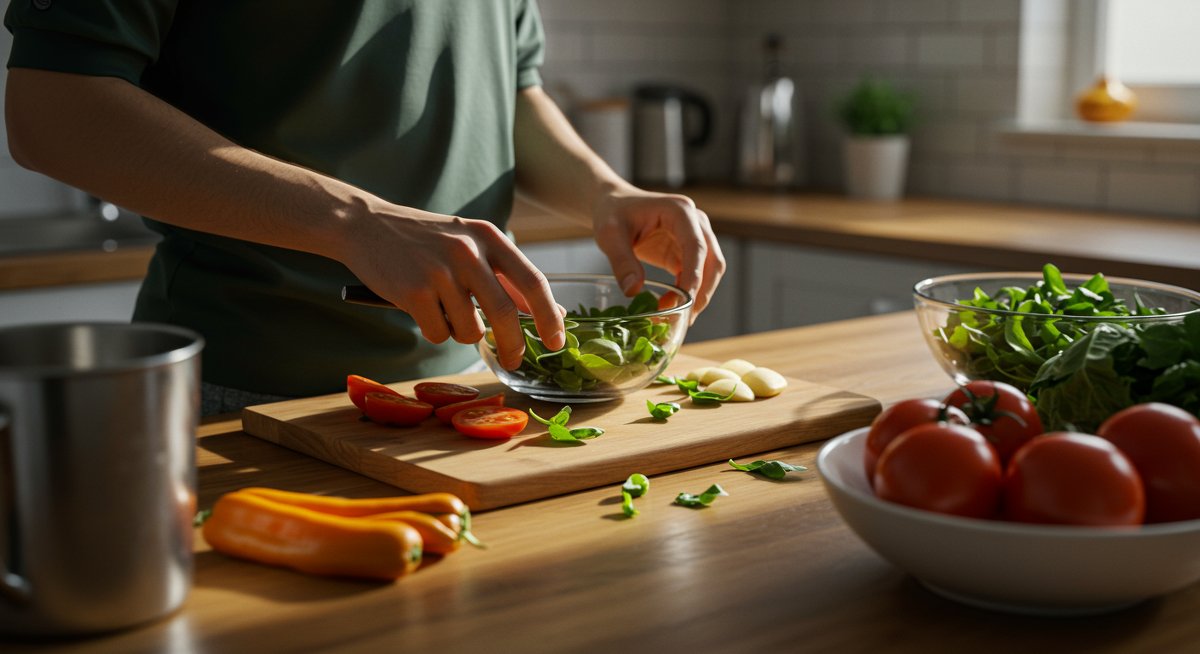Why This Reddit Post Caught My Eye
So, I was browsing r/loseit the other day, and I came across a post that really struck a chord with me. It was from a 23-year-old woman who had struggled with binge eating in her teens and managed to lose a significant amount of weight. But she was feeling fatigued with dieting and tempted to go back to her old ways. To get some clarity, she challenged herself to eat like she used to for a week. The results? Pretty eye-opening.
What grabbed my attention was how relatable her experience was. Many of us who have battled weight issues can identify with that feeling of diet fatigue and the pull of old, comforting habits. It's easy to forget just how much those habits were affecting us, both physically and mentally. This post was a great reminder that sometimes, a little experiment can be a powerful tool for staying on track.
It’s like revisiting a place you used to live and seeing it with fresh eyes. You notice things you never did before, both good and bad. In the same way, this woman’s week of “relapse” gave her a stark reminder of why she made the changes she did. It wasn’t just about the number on the scale; it was about how those old eating habits made her feel. This is something that really resonated with me, and I wanted to delve deeper into it.

Here's What Went Down
Let's break down what this person actually did. She went from a diet that prioritized whole, nutritious foods to eating whatever she wanted, in the quantities she used to. This meant full chocolate bars, packs of doughnuts, bags of sweets – the works. The key here is that she wasn't just indulging in a cheat meal; she was fully immersing herself in her old eating patterns for an entire week.
The immediate consequences were pretty unpleasant. She experienced acid reflux, bloating, brain fog, and a general feeling of nausea. And here's the kicker: the foods she used to crave didn't even taste good anymore. The chocolate-covered cakes and pistachio doughnut were overly sweet, salty, and just plain disgusting. She didn't get that dopamine hit she was expecting because the food didn't even taste like real food! Instead, she found herself craving broccoli, fish, and plain eggs – foods that had become her new normal.
What's fascinating is that this experiment revealed how much her taste buds had changed. Her body was now accustomed to and preferred whole, unprocessed foods. The hyper-palatable, sugar-laden treats of her past were no longer appealing. This highlights the incredible adaptability of our bodies and how our preferences can shift over time with consistent dietary changes.
What This Means for You: Lessons Learned
So, what can we learn from this experience? Well, if you've been on a weight loss journey or made significant changes to your diet, it might be worth considering a similar experiment. Now, I'm not suggesting you go completely off the rails and binge on junk food for a week. But a controlled "relapse" can provide valuable insights.
For starters, it can help you appreciate how far you've come. It's easy to forget the negative effects of our old eating habits when we're caught up in the daily grind of dieting. A reminder of those effects can be a powerful motivator to stay on track. Think about it – if you're constantly battling cravings and feeling deprived, a little taste of your old life might be just what you need to realize that it wasn't as great as you remember.
It can also help you identify trigger foods and situations. Maybe you discover that you can handle a small piece of chocolate cake at a birthday party, but a whole pack of cookies on a Tuesday night is a recipe for disaster. Understanding your personal triggers is crucial for long-term success. Recognizing when, where, and why you are likely to make unhealthy choices is the first step to managing those tendencies.
The Reality Nobody Tells You About
Let's be real, dieting isn't always sunshine and rainbows. There are going to be times when you feel like you're hitting a wall, when your motivation wanes, and when those old cravings come creeping back. It's during these times that the temptation to revert to old habits is the strongest. And that's perfectly normal.
But here's the thing: relapse doesn't have to be a complete failure. It can be a learning opportunity. The key is to approach it with awareness and a willingness to learn from your mistakes. Don't beat yourself up over a slip-up; instead, ask yourself what triggered it and what you can do differently next time. Did you skip a meal and get overly hungry? Were you stressed and seeking comfort in food? Identifying the underlying causes can help you develop strategies to cope with those situations in the future.
It's also important to remember that progress isn't always linear. There will be ups and downs, good days and bad days. Don't let a few setbacks derail your entire journey. As long as you're consistently moving in the right direction, you're making progress. And sometimes, a little detour can actually help you get back on the right path with renewed focus and motivation.
Making This Work for Your Life
Now, let's talk about how to apply this concept to your own life. If you're considering a "relapse" experiment, here are a few things to keep in mind. First, be clear about your intentions. Are you trying to remind yourself of the negative effects of your old eating habits? Are you trying to identify trigger foods? Are you simply curious to see how your taste buds have changed? Having a clear purpose will help you stay focused and avoid going completely overboard.
Second, set some boundaries. Decide in advance what you're going to eat, how much you're going to eat, and for how long you're going to eat it. Don't just give yourself free rein to eat whatever you want, whenever you want. This isn't about self-sabotage; it's about gaining insights. A controlled experiment with predetermined limits will provide you with the data you need to make positive adjustments to your nutritional strategy.
Third, pay attention to how you feel. Notice the physical and mental effects of your old eating habits. Are you experiencing digestive issues? Are you feeling sluggish and tired? Are you noticing changes in your mood? Keeping a food journal can be helpful for tracking these observations. It allows you to pinpoint the exact foods that cause problems so you can avoid them in the future.
Actually Putting This Into Practice
Okay, so how do you actually put this into practice? Let's say you've been following a healthy eating plan for a few months and you're feeling tempted to go back to your old ways. Here's a step-by-step approach:
Choose a timeframe: Decide how long you're going to experiment with your old eating habits. A week might be a good starting point, but you can adjust it based on your needs and preferences.
Identify your old habits: Make a list of the foods and eating patterns you want to revisit. Be specific. Instead of just saying "junk food," list the actual foods you used to eat regularly.
Set some boundaries: Decide how much of each food you're going to eat and when you're going to eat it. For example, you might decide to eat a small bag of chips every afternoon for a week.
Track your experience: Keep a food journal and record everything you eat, as well as how you feel physically and mentally. Be honest with yourself. The more information you gather, the better equipped you will be to make positive choices.
Reflect on your findings: After the experiment, take some time to reflect on your experience. What did you learn? What surprised you? What changes do you want to make to your current eating plan?

My Take on All This
Here's what I think about all this. I believe that this woman's experience highlights the importance of self-awareness in the weight loss journey. It's not just about following a set of rules or restricting certain foods; it's about understanding your own body, your own cravings, and your own triggers. And it's about being willing to experiment and learn from your mistakes.
Maybe I'm wrong, but I think that sometimes, the best way to move forward is to take a step back. A controlled relapse can be a valuable tool for gaining perspective, renewing motivation, and making lasting changes. Just remember to approach it with awareness, set some boundaries, and pay attention to how you feel. And don't be afraid to adjust your course as needed.
Ultimately, the goal is to find a way of eating that is both healthy and sustainable. A way of eating that nourishes your body, satisfies your cravings, and supports your overall well-being. And sometimes, the journey to that place involves a few detours along the way.